Lower Elementary
Our Montessori Lower Elementary program combines 6-9 year olds in a research learning based environment. By providing multi-sensory materials and small group based projects, our program is designed to ignite the imagination and foster an insatiable curiosity within the child.
The elementary child, having achieved physical independence in the early childhood program, now seeks intellectual independence. This is a time of rapid development offering the child an opportunity to exercise cooperation, imagination, abstraction, responsibility and develop a lifelong love for learning.
While our LE program is generally designed for children in the second plane of development (ages 6-9), we understand that some kindergartners (typically 5 years olds) may demonstrate readiness for this advanced environment.
Exceptions for kindergartners to join the Lower Elementary program are made on a case-by-case basis, prioritizing the child’s academic and social readiness. This decision is a collaborative process, requiring the full collaboration and consent of both parents and teachers.
At LMM we want parents to understand that the Lower Elementary curriculum is indeed geared for older students, focusing on more abstract concepts and independent work. However, our teachers are certified in both Early Childhood and Lower Elementary programs, enabling them to make appropriate accommodations for younger students who are ready for the challenge. These accommodations ensure that while the kindergartner is integrated into the older program, their individual developmental needs are still met.
The Montessori Elementary teacher introduces ideas, encourages self-motivation and presents materials that engage the child in the richness of the vast world and community surrounding them. This inclusive approach to learning exposes children to many interrelated topics and fosters a feeling of unity with humanity and a desire to understand and contribute to the world and community.
The Elementary curriculum includes geography, biology, science, history, language, mathematics, practical life, art studies, music, movement, with a variety of off campus field trips, traveling to places such as the Natural History Museum and Clark Planetarium. Children in the Lower Elementary are also introduced to a variety of local outdoor activities such as skiing, mountain biking and hiking.
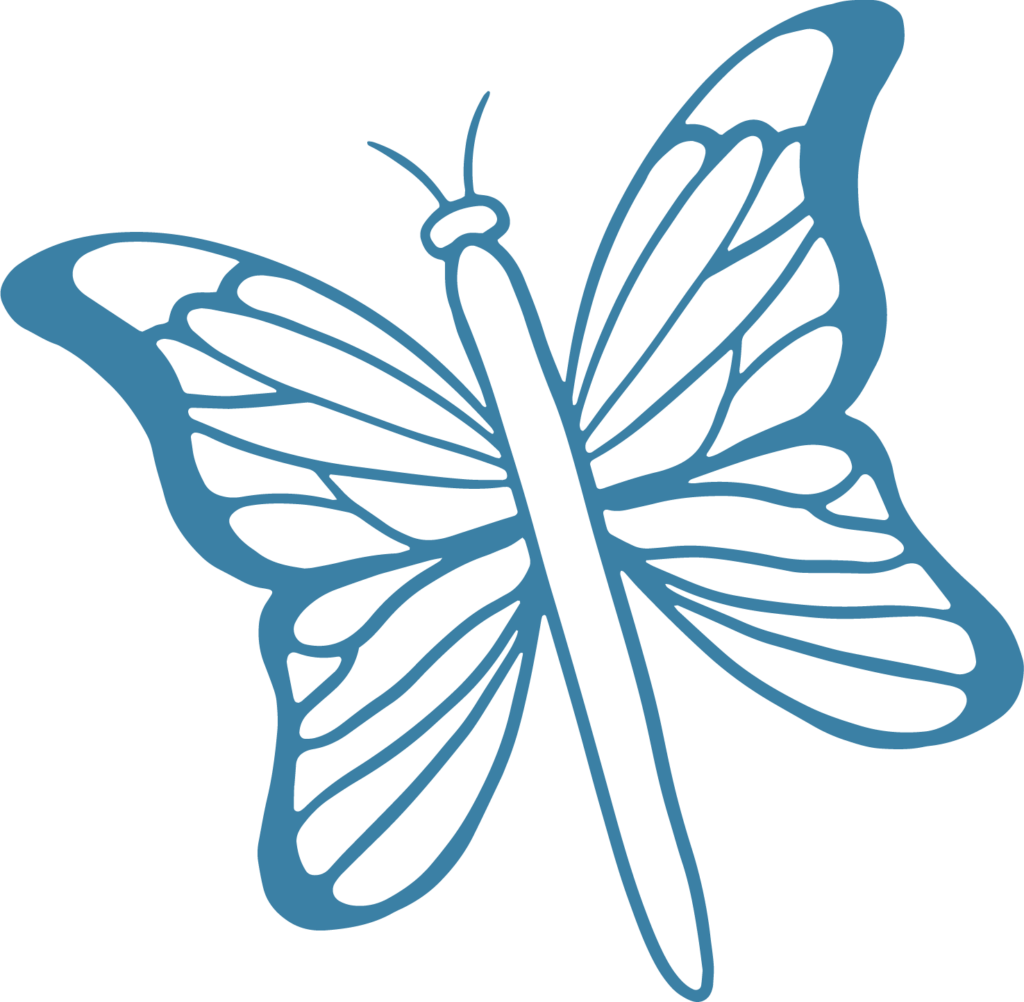

AGE GROUP
6 – 9 years old (exceptions considered)

FULL DAY
(M – F) 8:30-3:30PM
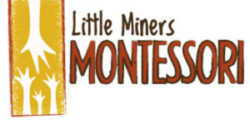
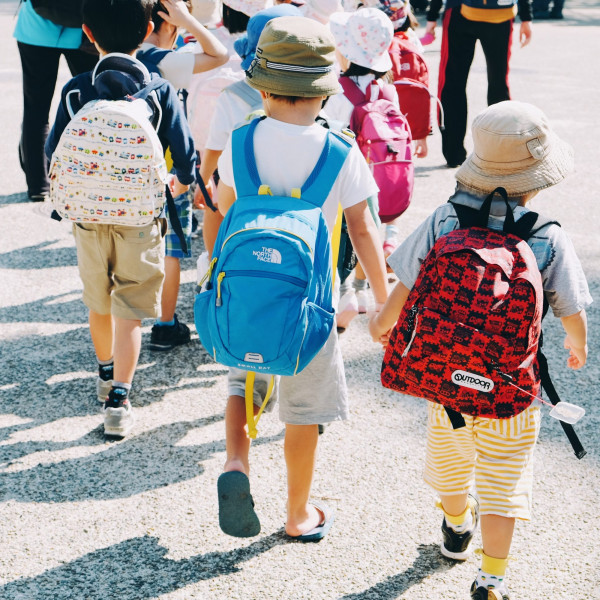
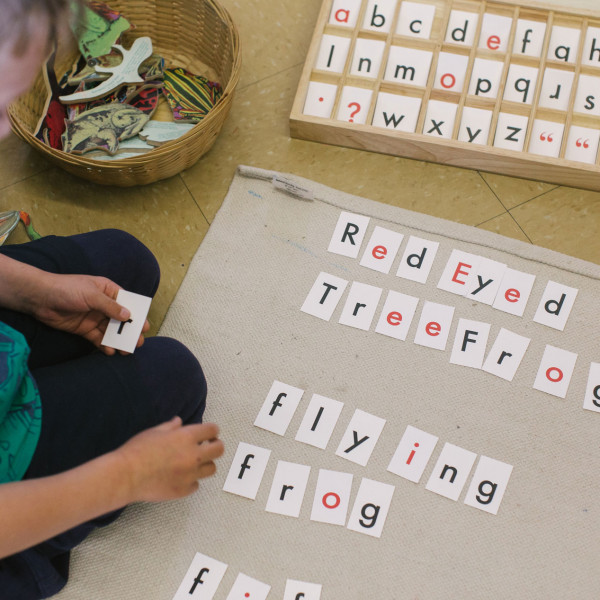
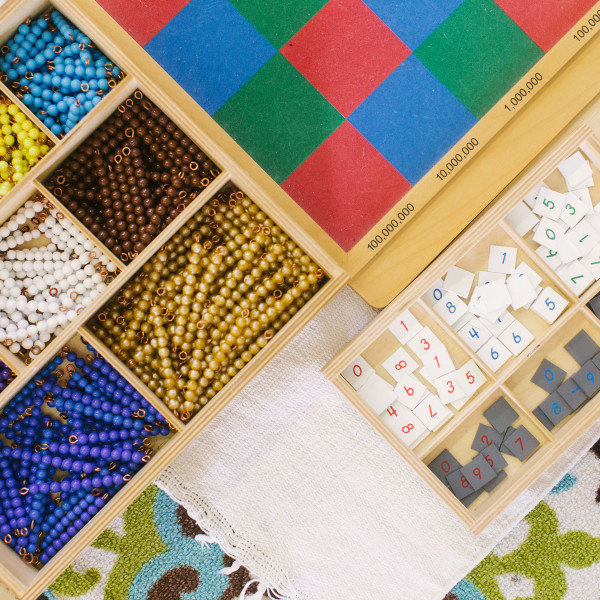
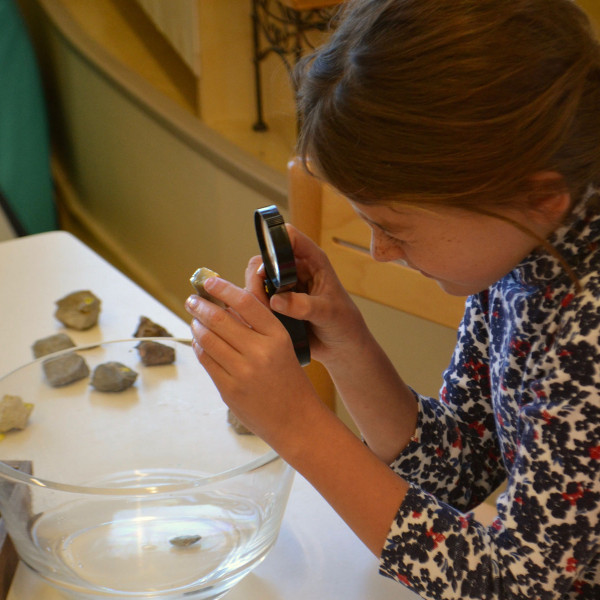
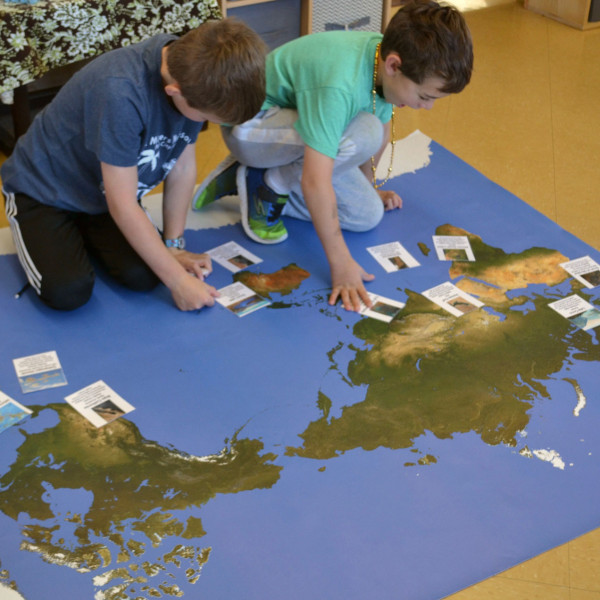
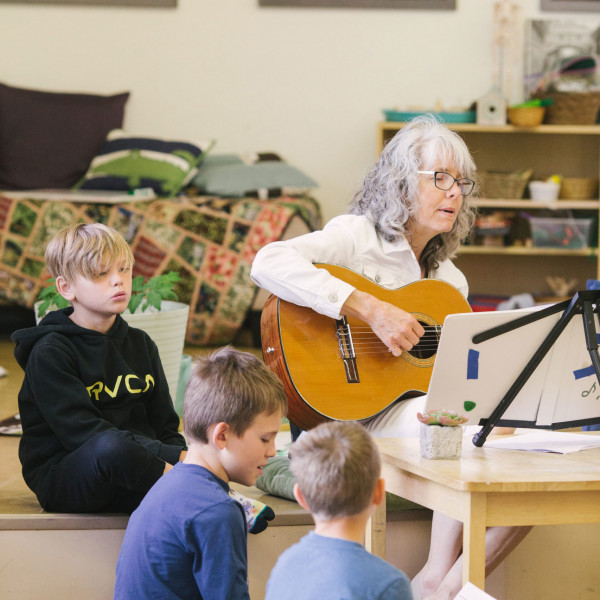
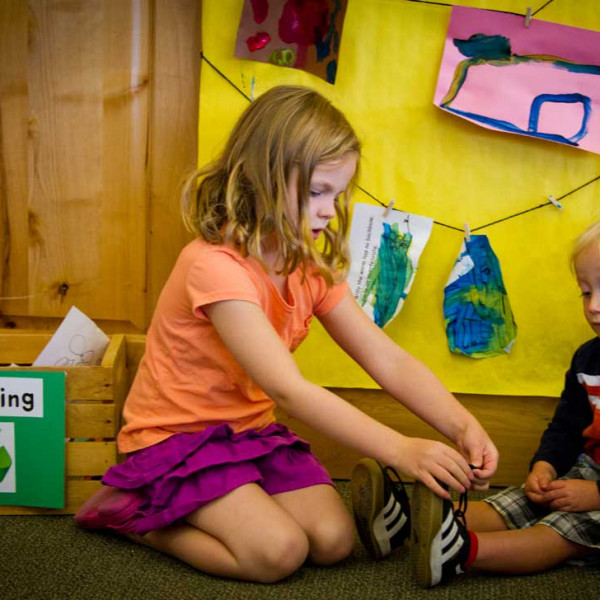
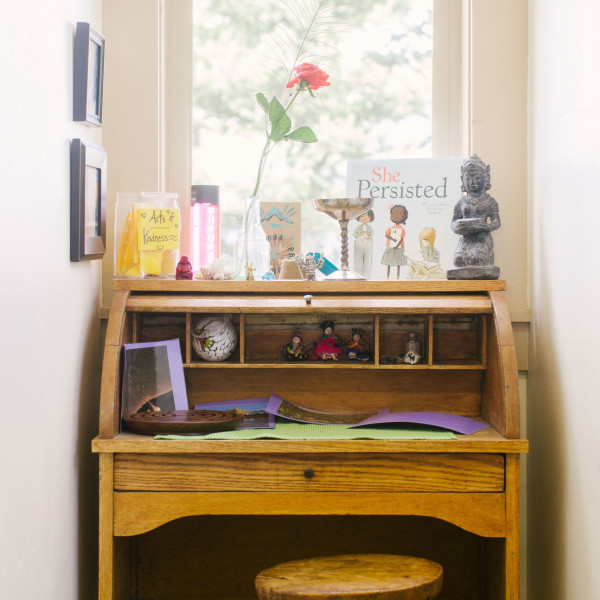
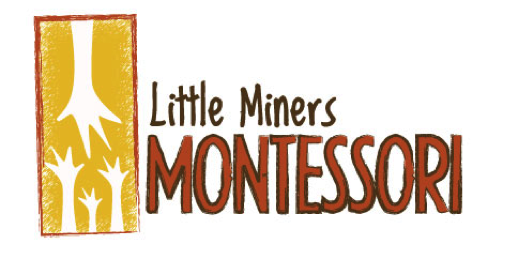
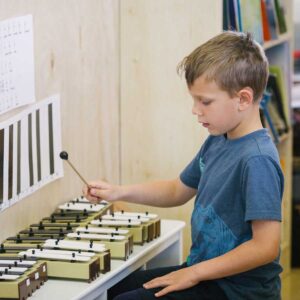
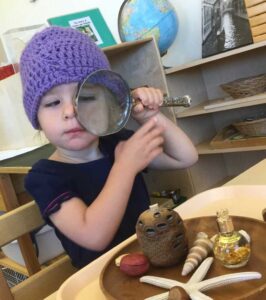
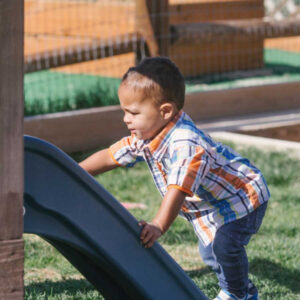





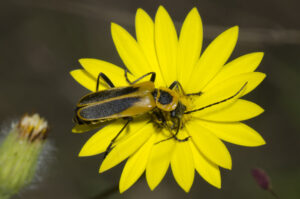

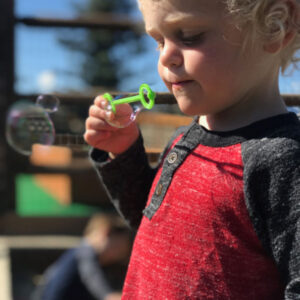
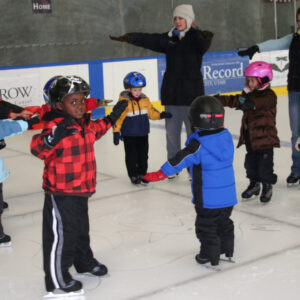

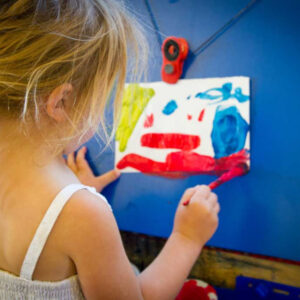
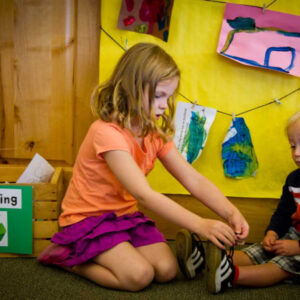
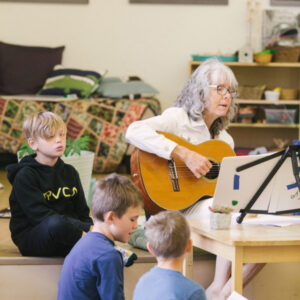
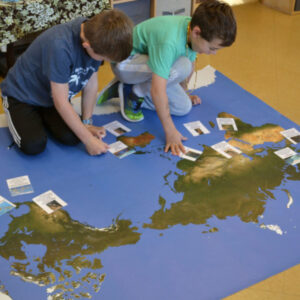
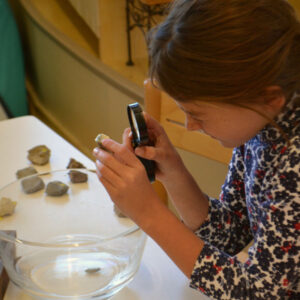
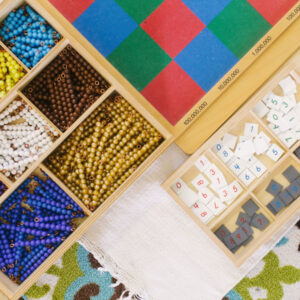
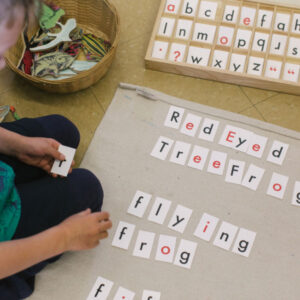
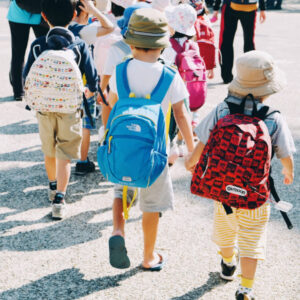
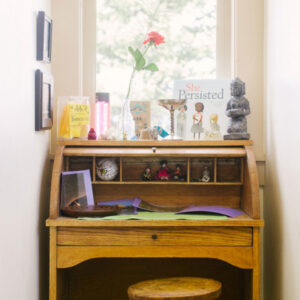
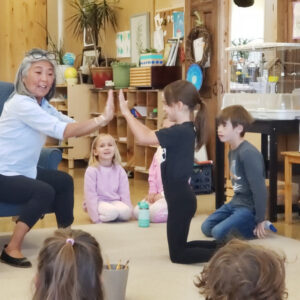
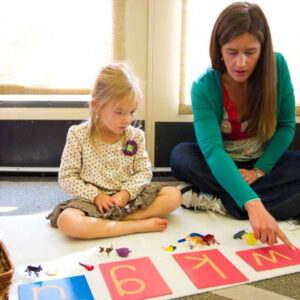 This is the culminating year of the Early-Childhood cycle which provides an extraordinary opportunity for the 5 and 6 year-olds to develop their leadership skills. Kindergartners act as positive peer models for their younger classmates. They enjoy their positions of responsibility that further strengthen their own capabilities and self-esteem. Everything that children have learned in the previous years as a Montessori student, come together in the Kindergarten year. These children are ready to meet new challenges with confidence and determination.
This is the culminating year of the Early-Childhood cycle which provides an extraordinary opportunity for the 5 and 6 year-olds to develop their leadership skills. Kindergartners act as positive peer models for their younger classmates. They enjoy their positions of responsibility that further strengthen their own capabilities and self-esteem. Everything that children have learned in the previous years as a Montessori student, come together in the Kindergarten year. These children are ready to meet new challenges with confidence and determination.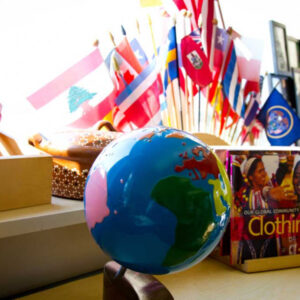 Geography in the Montessori classroom is a true celebration of the world’s diversity as well as it’s common threads. Children gain a deeper global perspective as they are introduced to land forms, continents, and study of the earth’s formation. The Geography curriculum begins with the two hemispheres of the Earth and becomes more detailed as children learn about the continents and the countries.
Geography in the Montessori classroom is a true celebration of the world’s diversity as well as it’s common threads. Children gain a deeper global perspective as they are introduced to land forms, continents, and study of the earth’s formation. The Geography curriculum begins with the two hemispheres of the Earth and becomes more detailed as children learn about the continents and the countries.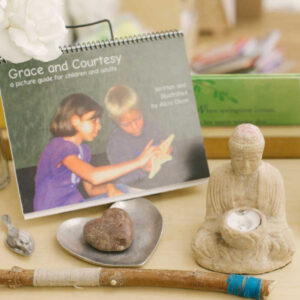 Perhaps the most critical life skill of all for children to master is the ability to work and play with others in a peaceful and caring way. Treating others with dignity and respect are cornerstones of the Montessori philosophy and are taught through Grace and Courtesy exercises.
Perhaps the most critical life skill of all for children to master is the ability to work and play with others in a peaceful and caring way. Treating others with dignity and respect are cornerstones of the Montessori philosophy and are taught through Grace and Courtesy exercises.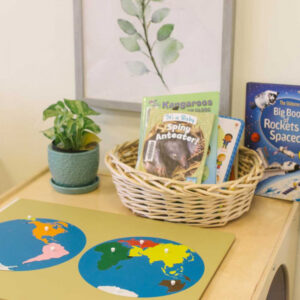 The Cultural area of the Montessori classroom can and should be as broad and varied as the world in which we live. Cultural Studies extend into the Practical Life, Sensorial, Math, and Language areas of the classroom and allow for further exploration with interesting and unique activities. The Cultural Area includes music, art, geography, history, ecology, geology, botany, zoology, and the physical sciences. These “key experiences” provide the child with a sense of wonder through sensorial experiences, literature, music, activities, and artifacts from all around the world. The Montessori classroom encourages exploration and curiosity to define a sense of self and the spirit of the people of the world.
The Cultural area of the Montessori classroom can and should be as broad and varied as the world in which we live. Cultural Studies extend into the Practical Life, Sensorial, Math, and Language areas of the classroom and allow for further exploration with interesting and unique activities. The Cultural Area includes music, art, geography, history, ecology, geology, botany, zoology, and the physical sciences. These “key experiences” provide the child with a sense of wonder through sensorial experiences, literature, music, activities, and artifacts from all around the world. The Montessori classroom encourages exploration and curiosity to define a sense of self and the spirit of the people of the world.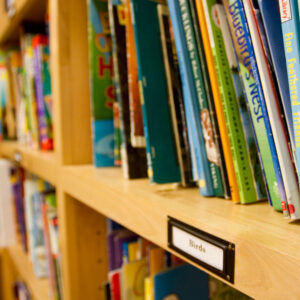 Maria Montessori observed that the potential exists for children to develop the higher language skills of reading and writing with the same ease with which they acquire oral speech. This “explosion” into literacy occurs naturally in the primary years if children are presented with the tools and experiences needed to nourish this organic inclination to learn.
Maria Montessori observed that the potential exists for children to develop the higher language skills of reading and writing with the same ease with which they acquire oral speech. This “explosion” into literacy occurs naturally in the primary years if children are presented with the tools and experiences needed to nourish this organic inclination to learn.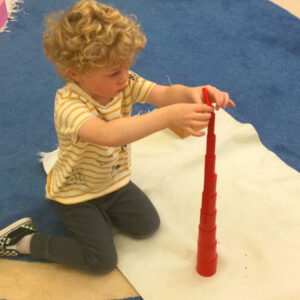 The Sensorial materials are critical for academics in the Montessori classroom. These activities begin with the youngest children in the class. Through various extensions and games they remain interesting to even the oldest children. The Sensorial materials build on the Practical Life activities and prepare the child for math and language through lessons in observation and problem solving.
The Sensorial materials are critical for academics in the Montessori classroom. These activities begin with the youngest children in the class. Through various extensions and games they remain interesting to even the oldest children. The Sensorial materials build on the Practical Life activities and prepare the child for math and language through lessons in observation and problem solving.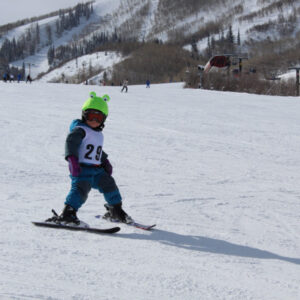 Little Miners offers Yoga, Ski, Ice Skating, Stretch & Grow, as well as plenty of outdoor time.
Little Miners offers Yoga, Ski, Ice Skating, Stretch & Grow, as well as plenty of outdoor time.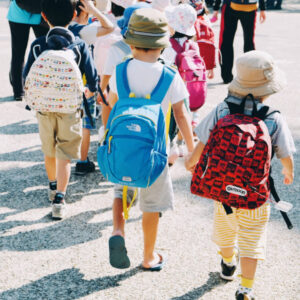 Info Coming Soon.
Info Coming Soon.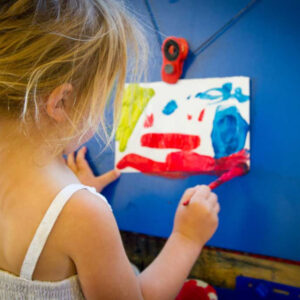 Art and music represent ways to communicate, ideas, imagination, culture, and humanity. Just as a child requires skills to write or dance or swim, she needs to also be given the tools and techniques to create her own masterpieces.
Art and music represent ways to communicate, ideas, imagination, culture, and humanity. Just as a child requires skills to write or dance or swim, she needs to also be given the tools and techniques to create her own masterpieces.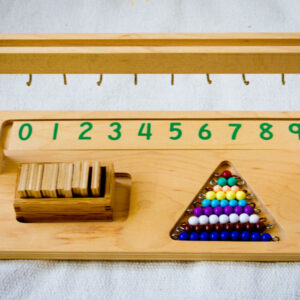 A carefully sequenced progression of mathematical activities from concrete to more abstract materials, simple to increasingly complex operations and lastly, tools for memorization of facts ensure a child’s whole brain development. The process and problem solving are first and foremost. Movement, active participation, and opportunities to problem solve, stimulate all four lobes of the brain, and nourish the child’s interest. Dr. Montessori created math materials that spark the imagination of the eagerly curious child.
A carefully sequenced progression of mathematical activities from concrete to more abstract materials, simple to increasingly complex operations and lastly, tools for memorization of facts ensure a child’s whole brain development. The process and problem solving are first and foremost. Movement, active participation, and opportunities to problem solve, stimulate all four lobes of the brain, and nourish the child’s interest. Dr. Montessori created math materials that spark the imagination of the eagerly curious child.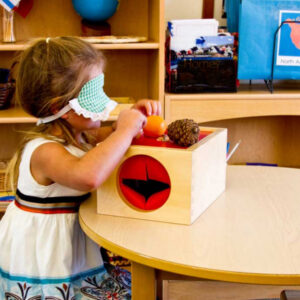 Sensorial activities assist Toddlers in the great task of organizing, integrating and learning about their sensory input. The sensorial materials are designed to simplify learning and awareness of the environment by isolating difficulty; isolating the senses; encouraging mastery through repetition; possessing self-correction within the material; and presenting an attractive appearance to the child.
Sensorial activities assist Toddlers in the great task of organizing, integrating and learning about their sensory input. The sensorial materials are designed to simplify learning and awareness of the environment by isolating difficulty; isolating the senses; encouraging mastery through repetition; possessing self-correction within the material; and presenting an attractive appearance to the child.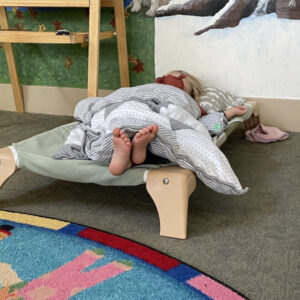 For those children enrolled in the full day schedule nap time will begin around 1:00PM following lunch, recess, and a pre-nap story time. LMM will provide a separate sleeping cot or a pop-out tent for each child.
For those children enrolled in the full day schedule nap time will begin around 1:00PM following lunch, recess, and a pre-nap story time. LMM will provide a separate sleeping cot or a pop-out tent for each child.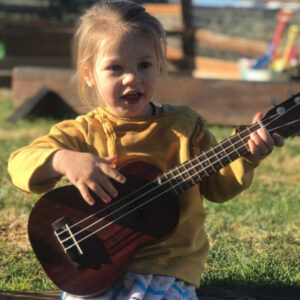 Music & Movement
Music & Movement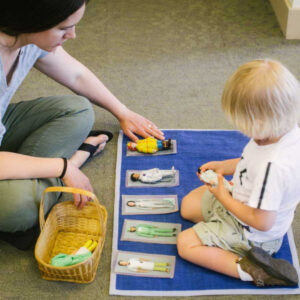 Around the age of two, children’s speech development experiences an explosion of words, soon followed by sentences. The Language materials in the Toddler classroom encourage the refinement and enrichment of language as the first steps on the road to writing and finally reading. Early Language materials and oral exercises like storytelling and reading aloud support the toddler’s need to be immersed in language. Activities include books, puzzles, naming objects like fruits, vegetables and animals, and beginning sound games.
Around the age of two, children’s speech development experiences an explosion of words, soon followed by sentences. The Language materials in the Toddler classroom encourage the refinement and enrichment of language as the first steps on the road to writing and finally reading. Early Language materials and oral exercises like storytelling and reading aloud support the toddler’s need to be immersed in language. Activities include books, puzzles, naming objects like fruits, vegetables and animals, and beginning sound games.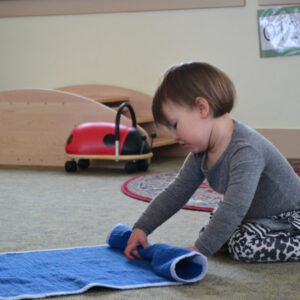 These are the first exercises introduced to the children. They create the foundation upon which all other work in the classroom depends. Practical Life exercises include care of self and the environment, as well as the development of large and fine motor control. These practical experiences in everyday activities are the cornerstone of the Montessori Method.
These are the first exercises introduced to the children. They create the foundation upon which all other work in the classroom depends. Practical Life exercises include care of self and the environment, as well as the development of large and fine motor control. These practical experiences in everyday activities are the cornerstone of the Montessori Method.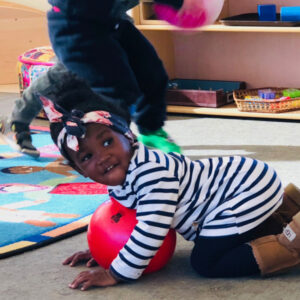 Little Miners has recently partnered our Toddler Program with Stretch-n-Grow of Utah! On Tuesdays and Wednesdays, our toddlers enjoy a 30-minute session of exercising with this fun company. Here is an excerpt from their website about Stretch-n-Grow:
Little Miners has recently partnered our Toddler Program with Stretch-n-Grow of Utah! On Tuesdays and Wednesdays, our toddlers enjoy a 30-minute session of exercising with this fun company. Here is an excerpt from their website about Stretch-n-Grow: